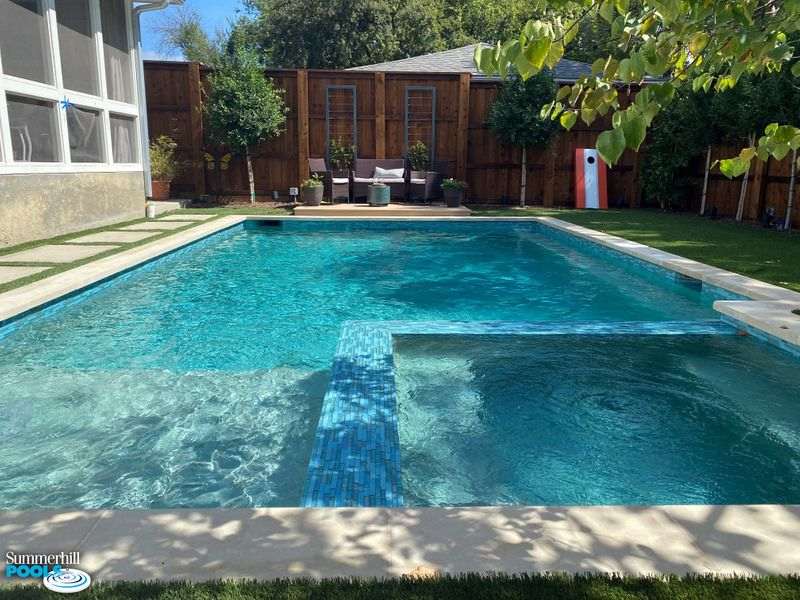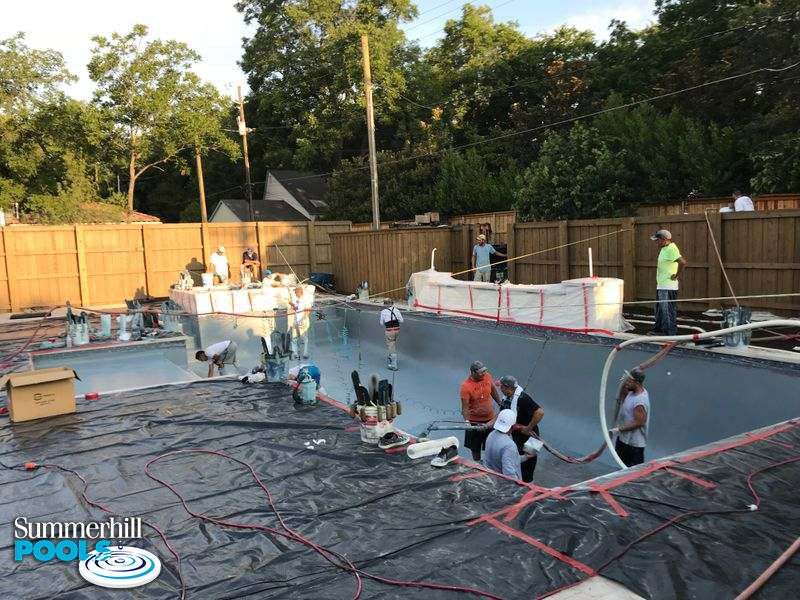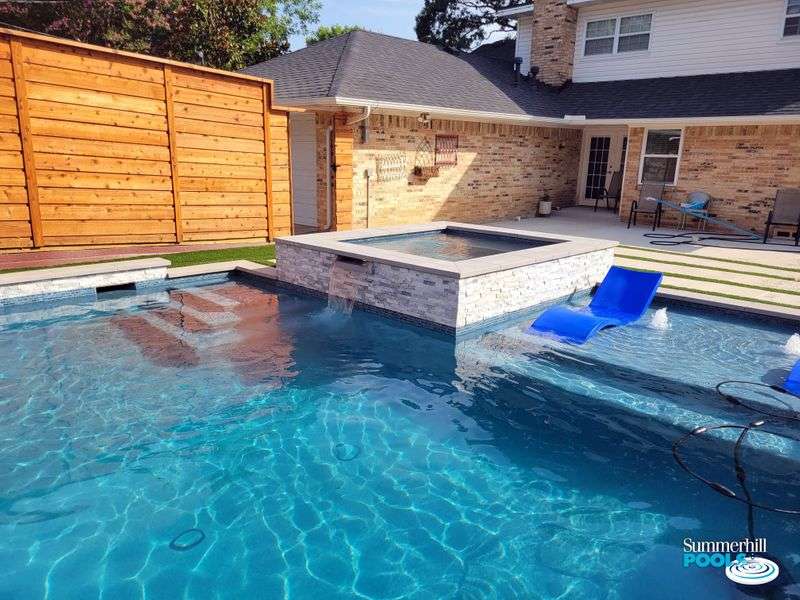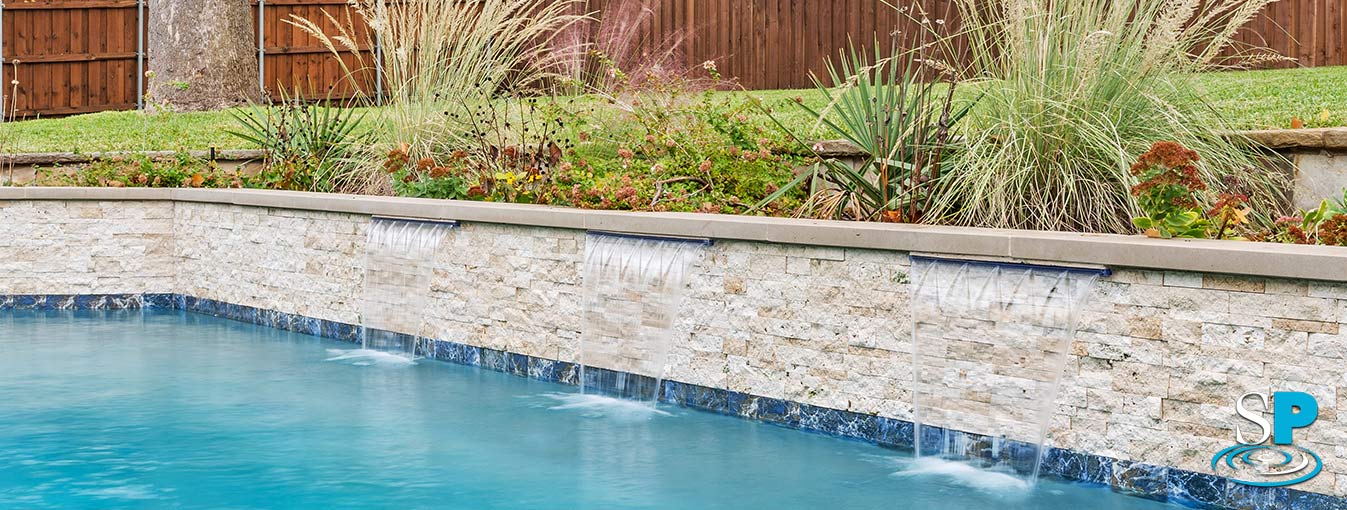
Your pool is a source of endless enjoyment with the beautiful Texas weather, but it can also be a lot of work to keep it in good condition. To keep it clean and functional, you’ll need to skim it daily and check chemical levels regularly, among other things.
Pool maintenance isn’t just about keeping your pool looking good; it’s also about protecting your health by preventing disease and health hazards from forming in your pool. A properly maintained pool is a great place to spend the summer, but an improperly maintained one is a breeding ground for sickness.
Pool Maintenance
Pool maintenance consists of multiple steps. It is important to keep up with your pool, as a little work now can help prevent much bigger problems later on. But always take care when performing pool maintenance, as some important steps can be strenuous or risky.
Skimming the Pool
One of the most basic maintenance techniques is skimming the pool once a day using a pool skimmer. It doesn’t take long for leaves, bugs, and more to collect on the surface of your pool. Frequent skimming can do a lot to maintain the appearance and cleanliness of your pool.
Brushing the Sides and Floor of the Pool
Calcium deposits and algae can build up on the sides and floor of your pool. If algae forms, it can, among other things, back up your pool’s filter, slow water circulation, make your pool chemicals less effective, and even cause E. coli to appear. You can help prevent all this by scrubbing the floor and sides of your pool with a soft pool brush.
Vacuuming the Pool
Take caution when using a pool vacuum, as you’ll be working with electricity. You should vacuum your pool after brushing it to suck up the loose particles. There are several different types of pool vacuums available, so make sure to get the correct one for your pool.
Pool Chemical Balancing
You’ll need to monitor multiple chemicals in a swimming pool. When pool chemicals become unbalanced, they can cause problems like bacteria, skin rashes, skin irritation, and sickness. It is worthwhile to involve a professional when dealing with chemicals.
Check the pH Level
A pH level is the balance of how much acid and alkali are in your pool. pH levels range from one to 14. It is recommended that your pool’s pH level stays between 7.3 and 7.6. A common problem for pool owners is the pH level becoming too high. When the pH level goes over 7.8, the water becomes too alkaline, causing your chlorine to be less effective. It can even cause skin rashes to form—not something you want when you are trying to enjoy a day of swimming!
pH Testing
There are several ways to test your pool’s pH level. Many experts recommend checking it two to three times a week.
Utilizing Reducers
When you need to reduce your pH level or chlorine, use a pH reducer (also known as a pH minus) or chlorine reducer. Take precautions when dealing with any pool chemicals.
Pool Chlorine
Another important pool chemical is chlorine. This helps sanitize your pool from things like:
- Dirt
- Algae
- Sweat
- Micro-organisms
Like other pool chemicals, chlorine has to be the right amount for it to work correctly.
Cleaning Pool Filters
It’s important to remember that when working with filters, you are also working with electricity and water. Be careful of strong water pressure. If you don’t know how to properly clean a pool filter, please contact a professional.
Take the following steps to help ensure your safety when changing filters.
First, please note: A lot more goes into safely working on your pool. These are just a few tips.
- Cut the power to the filter before doing any work.
- Wear rubber-soled shoes.
- Don’t stand in water.
Pool filters play an important role in the overall quality of your pool water. During the swimming season, an average pool filter needs to be cleaned once every month. There are several different types of pool filters on the market. These filters all need to be cleaned in different ways.
Consult your filter’s manual before beginning work, as not all pool filters are the same.
Checking Water Levels
For your pool to have the correct water level, it needs to be between one-third and half of the skimmer box on the side of your pool. If the water level is too high or too low, it can prevent the skimmer from doing its job correctly. You should check your pool’s water level daily to catch potential problems before they escalate.
Pool Cleaning Services and Construction in Dallas

As this blog post has shown, a lot goes into maintaining a pool. If you’re not sure what you’re doing or don’t have the time or energy to do it, hire a professional. If you’re in the greater Dallas area, Summerhill Pools can help you with your pool needs, from cleaning to construction. Founded in 1989, Summerhill Pools has the experience and knowledge to help make your pool season as enjoyable as possible.
Pool Renovation in Dallas
We offer pool and deck renovations to help your pool look like new again. Your pool and deck are subject to the effects of elements as well as wear from use. A worn-out deck can be dangerous and negatively affect the look of your property. Also, when a pool wears out, it can affect its integrity. Renovation work now can save you money down the line. Whether you want to upgrade your pool or you need to repair it, we can help.
Some of the services we offer include:
- Pool re-tiling
- Pool resurfacing
- Deck resurfacing
Pool Remodeling in Dallas
You can always update a pool to better reflect your current needs or situation. Our team is happy to help remodel your pool to maximize your enjoyment of it.
Several of the remodeling services we offer include:
- Size changes—larger or smaller
- Depth renovation—deeper or shallower
- Energy-efficiency upgrades
- Adding water features
When you’re ready to optimize your pool, connect with us.



